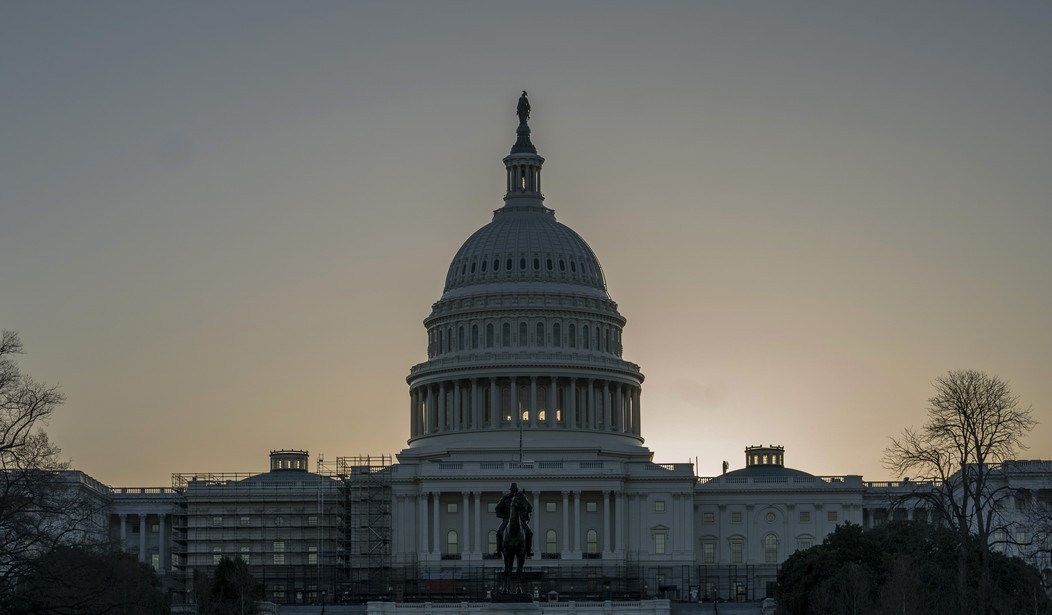To say that the United States is divided would be the understatement of the century. Over the past decade, the rift in American society along partisan political lines has been ever-widening to the point that those paying attention question whether the divide can ever be healed.
Talk of a second civil war has not been rare among members of the chattering class. Discussions about a national divorce have been even more common as people speculate about how this chasm might lead to a much different country from the one to which we have been accustomed.
A brand new poll was released showing that Americans are not exactly optimistic about the state of the country in the future. It seems most people see how deeply the division has developed, and a sizeable percentage believe that it will fundamentally alter the makeup of America in less than a decade. RedState’s Ward Clark wrote:
According to a recent Insights & Issues/TIPP poll, Americans are not sanguine about the continued unity of the country.
Starting with the Unity Index, the proprietary I&I/TIPP gauge of national harmony, we ask people each month if they feel our common bond remains. They are then given five possible responses: “very united,” “somewhat united,” “somewhat divided,” “very divided” or “unsure.”
For June’s national online I&I/TIPP poll of 1,358 adults, taken from May 31-June 2, just 24% of respondents declared that they felt the U.S. was “united.” Among that group, only 9% said the U.S. was “very united,” while 15% called it “somewhat united.”
But by nearly 3-to-1, 74% of respondents called America “divided.” Of those, 42% said it was “very divided,” while 32% termed it “somewhat divided.”
That’s three-fourths of respondents indicating that the United States is no longer really united. That’s concerning, for anyone who cares about the future of the Republic. But here’s the part I found troubling:
The I&I/TIPP Poll asked a bonus question this month, one intended to perhaps better understand the apparent angst Americans have today about being a unified country: “How likely is it that the United States will exist in its present form 10 years from now?”
The response was disquieting: A bare majority of 51% said it was “likely,” while 34% said it was “unlikely.” Another 15% said they were “unsure.”
So, one-third of Americans believe the country, as we know it, will not exist in ten years. Given what we are seeing today, it is difficult to blame them. I suspect the percentage would have been higher if the survey asked about 20 years instead of ten. So how might this play out? Will the current environment lead to the civil war that some believe will happen, or is there a way a national divorce of sorts could happen without bloodshed?
The deepening political divisions in America have reached a critical point, causing concern among citizens from all walks of life. The need for a solution that can bridge this widening gap and restore unity has become increasingly urgent.
I agree with my colleague, Ward Clark, who posits in his article that decentralization—an idea that calls for reducing the power of the federal government and returning authority to the states — is the only way to resolve America’s differences without violence. By adopting a structure similar to what America had under the earlier Articles of Confederation, where the federal government’s influence was limited, we can potentially alleviate tensions and create a less volatile political landscape.
In the current polarized climate, the concentration of power at the federal level has contributed to the growing rifts between political factions. With each election cycle, the stakes appear higher, and the nation becomes more divided. By reducing the federal government’s power, concerns about who is in charge and the imposition of one-size-fits-all solutions can be alleviated.
After all, if the federal government were to shrink to a fraction of the size it is at the moment, it won’t matter as much who is running it because its policies would affect far fewer people. When decisions are made closer to the people they directly impact, individuals and communities have greater agency and can tailor policies to meet their specific needs.
It is worth acknowledging that advocating for decentralization is not popular among the ruling class in both Republican and Democratic circles. The concentration of power in Washington serves the interests of those in power, allowing them to exert influence and control over a broad range of policies. The prospect of diminishing federal power threatens their hold on authority and challenges their ability to shape national agendas. To put it simply, the elites would fight this at every turn. But this does not mean there are not ways to bring about such a scenario.
Implementing decentralization akin to the structure under the Articles of Confederation would allow states to regain their rightful autonomy and shape governance based on their distinct values and priorities. This approach recognizes that what works in one state may not be suitable for another, avoiding the imposition of uniform policies that breed resentment and further division.
While the idea of decentralization may seem radical or disruptive to some, it presents a viable path toward avoiding a violent or irreparable national divorce. By returning power to the states, Americans can embrace a more localized form of governance that respects regional differences, cultural nuances, and individual liberties. This approach holds the potential to reduce the pressure cooker of national politics and provide the space for diverse solutions to emerge.
Decentralization is not a foolproof solution, and challenges would undoubtedly arise during the transition. However, the potential benefits outweigh the risks. A renewed focus on local governance would reinvigorate civic engagement, allowing citizens to have a more direct impact on the decisions that shape their lives.
As America grapples with an increasingly fractured society, it makes sense to look at other options that would satisfy people on both sides of the political divide. If one likes more intrusive government, they can live in a blue state. If they like less government, go red. For those who want even less government, go to a libertarian-dominated state. Decentralization offers a path that can address the political rifts without resorting to violence or further exacerbating divisions. By empowering states and embracing a more localized approach, America can embark on a journey toward reconciliation and ensure a brighter future for generations to come.













